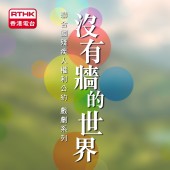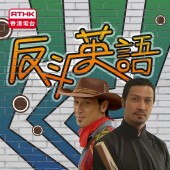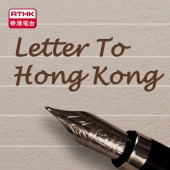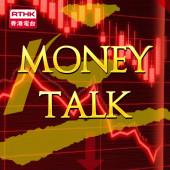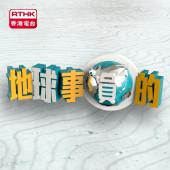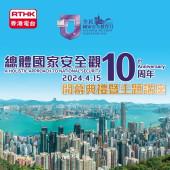 Loading ...
Loading ...Executive Councillor Tommy Cheung
2021-01-10
返回
Executive Councillor Tommy Cheung
2021-01-10
Dear Friends :
We have just stepped into another year with new resolutions and renewed hope that every misfortune would be left behind. Past mishaps, although some are abating, yet we still see no end to the colossal Covid pandemic.
While the Health Department and the medical frontline staff should be commended for diligently holding fort, it pains me to read the daily news reports on how stressed-out they are, and could not help but yearn for a solution to end this perennial problem of our overloaded public medical service.
It is unrefutable that there is an acute shortage of doctors in Hong Kong. Per capita doctor ratio in Hong Kong was 2.0 per 1,000 people in 2018, one of the lowest amongst advanced countries in Asia. We need 3,400 more doctors to catch up with Singapore’s 2.4 doctors/1,000 inhabitants, and 10,000 more doctors to reach OECD’s (Organization for Economic Co-operation & Development) level of 3.4 doctors/1,000 inhabitants.
What aggravates matters further is that ONLY 46% of our doctors work in the public medical system which provided about 90% of Hong Kong’s in-patient services. That is to say, we have one doctor for 900 Hong Kong people who need public healthcare ! Insufficient manpower is putting tremendous stress on doctors and our healthcare, and with ageing population, the queuing time for public medical services is extremely long.
The main cause of this deficit dates back to 1996, when exemption of examinations for overseas-trained doctors from six selected Commonwealth countries to practice in Hong Kong was canceled.
Between 1990 and 1995, Hong Kong introduced 200 doctors annually through this “overseas-trained doctors” channel, accounting for about 42% of the number of new doctors each year. However, after the cancellation of the policy, in the past 22 years from 1997 onwards, only 457 overseas doctors were allowed to practice in Hong Kong, accounting for only 3% of our overall doctors’ supply at the end of 2018.
From 200 a year to only 200 in 10 years, this sharp drop of overseas-trained doctors has caused the supply to fall far short of the needs of Hong Kong’s population growth and ageing. And what has been stopping the number of our doctors from growing, and the subsequent difficulty in seeking timely medical care ? The failure to reform the Medical Council - the body that licenses local doctors, boils down to one thing – doctors’ self-interests.
The fact that the Hong Kong Medical Council and local doctors with their protectionist attitude is the chief factor to this unbalanced scenario. They are aware that our public hospitals are insufficiently staffed, yet they have been barring the import passage of doctors to contrive a situation of “lack-of-supply” to keep their level of consultation fees up, and with all kinds of means to keep competition out. For many years, the barrier to delay the acquisition of official licenses by overseas doctors have been devised through unfair pre-requisites to deter the interests of many senior, highly qualified, experienced doctors.
Demonizing Mainland trained doctors is old tale from a quarter of century ago. Ridiculing China-trained practitioners is shutting out not only the Mainlanders, but the whole world’s pool of medical talents. This closed door mentality with the excuse of maintaining a high standard is hiding behind a shield of moral high ground claims to exclude others not of your kind. Hong Kong should be taken as the prerogative, false alarm should not be caused to the public for personal interests.
Competition leads to progress, healthy competition enhances our healthcare industry. Hong Kong citizens, and the doctors themselves, will be the ultimate beneficiaries.
Hurdles must be overcome to bring in overseas help in our medical practice.
Currently, overseas-trained doctors are allowed to practice in HK under Limited Registration with passing a Licensing Examination and meeting other qualifying requirements. However, annual admission of these overseas-trained doctors is too modest to relieve the current shortage in the Hong Kong medical system.
Many overseas specialists, or even local ones, who have years of practical experiences and specialty knowledge, would find this exam too generalized and unfamiliar to their specialized fields. The exam covers the 5-year local medical curriculum, which generally benefits only the young graduate doctors as their memories on the courses are still fresh. Taking a local medical course again for assessments can turn out to be an ungainly and cumbersome hurdle to lure these much needed specialists to go through, and thus dampen their desire to return.
I have a lot of doctor friends in their 40s – 50s who told me they took the exam 30 years ago, and the irony is, if they take the exam now, they were certain they couldn’t pass it. The analogy is like asking a university professor to take the DSE exam, if they do not pass it, does that mean they are not qualified to teach ? Similarly, this does not mean that a specialist doctor is not qualified to practice medicine, it is just that they have been focusing on their profession for many years, and it’s against all common sense to go back to the general university knowledge which does not necessarily reflect their ability and specialized skills. But the Medical Council is doing exactly that. It requires overseas doctors who have been in a certain specialized areas for many years to take exams in subjects unrelated to their specialty. It’s all a protectionist measure. Doctors are not afraid of taking the exam, it’s the old boys’ network who is afraid of competition.
Overseas-trained doctors with exemption from examinations are practiced in Singapore, Australia and the United Kingdom for over 30 years. Last May, a report made by the Legislative Council Secretariat has an in-depth study to have proven Singapore and Australia‘s exemption is feasible.
Singapore basically uses two checkpoints. The first is doctors need to have graduated from accredited overseas medical schools. The second is that the doctor must practice for 2 to 4 years under the supervision of a senior doctor approved by the Singaporean Medical Council. Only if the overseas trained doctors are rated as performing satisfactorily, can they then be considered for formal registration.
As for Australia, it is handled separately in two categories - General Registration doctors need to have passed medical assessment in 5 selected places, namely : the UK, the US, Canada, New Zealand & Ireland, pass a pre-employment clinical interview, then after completing one year of supervised practice, the candidate can apply for "General Registration" qualification.
For Specialists, overseas-trained doctors who already hold specialist qualifications will be directly assessed by the relevant Australian medical colleges. The candidate must undergo a 1- year peer review or 2 years of supervision and practice. After a further evaluation, they can then be eligible for “Specialist Registration”.
From the experiences of these two countries, there are two basic elements of the mechanism. The first one is set to a level on par with the local medical range; and the second is “supervision-based". Under the supervision within the specified time required, only those with satisfactory performances are eligible to apply for formal registration.
This speaks strongly as proof that exemption of exam is not equivalent to sacrificing quality. Indeed, this supervision-practice-evaluation method is superior to the one-off evaluation with an exam to guarantee consistent performance on a long-term basis.
The consideration on hand is not on the discussion of exemption of exams, but on how to develop a mechanism to admit doctors and specialists trained overseas to practice in Hong Kong with stringent quality assurance - as quality is definitely our primary concern.
Hong Kong needs to speak up on this issue. I appeal to everyone – Lawmakers, Government Officials, and every citizen. With togetherness, we can overcome the protectionist and biased attitude of the minority medical circle to realize this new year resolution soon.
May Hong Kong healthcare continue to be Asia’s best ! And may all Hong Kong people continue to live a long and healthy life !
We have just stepped into another year with new resolutions and renewed hope that every misfortune would be left behind. Past mishaps, although some are abating, yet we still see no end to the colossal Covid pandemic.
While the Health Department and the medical frontline staff should be commended for diligently holding fort, it pains me to read the daily news reports on how stressed-out they are, and could not help but yearn for a solution to end this perennial problem of our overloaded public medical service.
It is unrefutable that there is an acute shortage of doctors in Hong Kong. Per capita doctor ratio in Hong Kong was 2.0 per 1,000 people in 2018, one of the lowest amongst advanced countries in Asia. We need 3,400 more doctors to catch up with Singapore’s 2.4 doctors/1,000 inhabitants, and 10,000 more doctors to reach OECD’s (Organization for Economic Co-operation & Development) level of 3.4 doctors/1,000 inhabitants.
What aggravates matters further is that ONLY 46% of our doctors work in the public medical system which provided about 90% of Hong Kong’s in-patient services. That is to say, we have one doctor for 900 Hong Kong people who need public healthcare ! Insufficient manpower is putting tremendous stress on doctors and our healthcare, and with ageing population, the queuing time for public medical services is extremely long.
The main cause of this deficit dates back to 1996, when exemption of examinations for overseas-trained doctors from six selected Commonwealth countries to practice in Hong Kong was canceled.
Between 1990 and 1995, Hong Kong introduced 200 doctors annually through this “overseas-trained doctors” channel, accounting for about 42% of the number of new doctors each year. However, after the cancellation of the policy, in the past 22 years from 1997 onwards, only 457 overseas doctors were allowed to practice in Hong Kong, accounting for only 3% of our overall doctors’ supply at the end of 2018.
From 200 a year to only 200 in 10 years, this sharp drop of overseas-trained doctors has caused the supply to fall far short of the needs of Hong Kong’s population growth and ageing. And what has been stopping the number of our doctors from growing, and the subsequent difficulty in seeking timely medical care ? The failure to reform the Medical Council - the body that licenses local doctors, boils down to one thing – doctors’ self-interests.
The fact that the Hong Kong Medical Council and local doctors with their protectionist attitude is the chief factor to this unbalanced scenario. They are aware that our public hospitals are insufficiently staffed, yet they have been barring the import passage of doctors to contrive a situation of “lack-of-supply” to keep their level of consultation fees up, and with all kinds of means to keep competition out. For many years, the barrier to delay the acquisition of official licenses by overseas doctors have been devised through unfair pre-requisites to deter the interests of many senior, highly qualified, experienced doctors.
Demonizing Mainland trained doctors is old tale from a quarter of century ago. Ridiculing China-trained practitioners is shutting out not only the Mainlanders, but the whole world’s pool of medical talents. This closed door mentality with the excuse of maintaining a high standard is hiding behind a shield of moral high ground claims to exclude others not of your kind. Hong Kong should be taken as the prerogative, false alarm should not be caused to the public for personal interests.
Competition leads to progress, healthy competition enhances our healthcare industry. Hong Kong citizens, and the doctors themselves, will be the ultimate beneficiaries.
Hurdles must be overcome to bring in overseas help in our medical practice.
Currently, overseas-trained doctors are allowed to practice in HK under Limited Registration with passing a Licensing Examination and meeting other qualifying requirements. However, annual admission of these overseas-trained doctors is too modest to relieve the current shortage in the Hong Kong medical system.
Many overseas specialists, or even local ones, who have years of practical experiences and specialty knowledge, would find this exam too generalized and unfamiliar to their specialized fields. The exam covers the 5-year local medical curriculum, which generally benefits only the young graduate doctors as their memories on the courses are still fresh. Taking a local medical course again for assessments can turn out to be an ungainly and cumbersome hurdle to lure these much needed specialists to go through, and thus dampen their desire to return.
I have a lot of doctor friends in their 40s – 50s who told me they took the exam 30 years ago, and the irony is, if they take the exam now, they were certain they couldn’t pass it. The analogy is like asking a university professor to take the DSE exam, if they do not pass it, does that mean they are not qualified to teach ? Similarly, this does not mean that a specialist doctor is not qualified to practice medicine, it is just that they have been focusing on their profession for many years, and it’s against all common sense to go back to the general university knowledge which does not necessarily reflect their ability and specialized skills. But the Medical Council is doing exactly that. It requires overseas doctors who have been in a certain specialized areas for many years to take exams in subjects unrelated to their specialty. It’s all a protectionist measure. Doctors are not afraid of taking the exam, it’s the old boys’ network who is afraid of competition.
Overseas-trained doctors with exemption from examinations are practiced in Singapore, Australia and the United Kingdom for over 30 years. Last May, a report made by the Legislative Council Secretariat has an in-depth study to have proven Singapore and Australia‘s exemption is feasible.
Singapore basically uses two checkpoints. The first is doctors need to have graduated from accredited overseas medical schools. The second is that the doctor must practice for 2 to 4 years under the supervision of a senior doctor approved by the Singaporean Medical Council. Only if the overseas trained doctors are rated as performing satisfactorily, can they then be considered for formal registration.
As for Australia, it is handled separately in two categories - General Registration doctors need to have passed medical assessment in 5 selected places, namely : the UK, the US, Canada, New Zealand & Ireland, pass a pre-employment clinical interview, then after completing one year of supervised practice, the candidate can apply for "General Registration" qualification.
For Specialists, overseas-trained doctors who already hold specialist qualifications will be directly assessed by the relevant Australian medical colleges. The candidate must undergo a 1- year peer review or 2 years of supervision and practice. After a further evaluation, they can then be eligible for “Specialist Registration”.
From the experiences of these two countries, there are two basic elements of the mechanism. The first one is set to a level on par with the local medical range; and the second is “supervision-based". Under the supervision within the specified time required, only those with satisfactory performances are eligible to apply for formal registration.
This speaks strongly as proof that exemption of exam is not equivalent to sacrificing quality. Indeed, this supervision-practice-evaluation method is superior to the one-off evaluation with an exam to guarantee consistent performance on a long-term basis.
The consideration on hand is not on the discussion of exemption of exams, but on how to develop a mechanism to admit doctors and specialists trained overseas to practice in Hong Kong with stringent quality assurance - as quality is definitely our primary concern.
Hong Kong needs to speak up on this issue. I appeal to everyone – Lawmakers, Government Officials, and every citizen. With togetherness, we can overcome the protectionist and biased attitude of the minority medical circle to realize this new year resolution soon.
May Hong Kong healthcare continue to be Asia’s best ! And may all Hong Kong people continue to live a long and healthy life !
Politicians and public figures from a range of backgrounds take turns to have their say on important matters of the day in this personal view programme.
Catch it live: Sunday 8:15am - 8:25am
Podcast: Updated weekly and available after broadcast.
